The documentary film Citizenfour on whistleblower Edward Snowden’s revelations on the NSA surveillance programme was screened at the Biografestival in Bologna.
In 2013 Edward Snowden’s Datagate revealed the greatest American plot to deprive citizens of some of their liberties and showed that Big Brother exists all around the Western World today. This is another issue in the ‘erosion of democracy’ series.
Does this mean the governments’ betrayal of the constitutional values springing from the French and American revolutions?
You had to live – did live, from habit that became instinct – in the assumption that every sound you made was overheard, and, except in darkness, every movement scrutinized: the opening words of George Orwell’s Nineteen Eighty-Four show how accurate George Orwell’s predictions were.
The documentary was introduced by Roberto Saviano, author of the 2006 non-fiction bestseller Gomorrah, a dark voyage inside the economic empire and the dream of dominion of the Camorra, the criminal organization operating in Naples.
Both Edward Snowden and Roberto Saviano sacrificed their lives for the general welfare, but while the whistleblower is hunted by ‘legal power’, the Italian author is hunted by ‘illegal power’.
Is this contrast real or is it only apparent?
Welcome to the Cineteca di Bologna for the screening of the greatest American plot
It’s seven p.m. on June 15, 2015, the right time for a walk in the ‘bio parco’ just outside the building where I am now. The bio park that joins the Cineteca to the MAMBO (Museo di Arte Moderna Bologna) is getting crowded. The heat is still on, but it is ‘happy hour’ time and so open air bars, street food stands and restaurants are lighting up this portion of the Bologna night sky. By the lake inside the park people are already drinking and chatting, waiting for dinner time and for the live events that are taking place later in the night, when the breeze from the the famous colli bolognesi (the surrounding hills) is going to cool off the heat of the day.
Bologna is the capital city of Emilia-Romagna, situated 100 km North of Florence. It is another Italian jewel often ignored by foreign travellers, a town nicknamed ‘la grassa, la rossa, la dotta’ – the fat, the red, the learned – because of its excellent cuisine, its political leftism and its famed university, the oldest in the country. The Cineteca di Bologna, located inside an ex industrial citadel in the city centre, now restored and renamed ‘Cittadella delle Arti’, is the most important Italian institution in the movie field not only for the excellent quality of its screening, but also for its classic film restoration programme and its festivals.
June is the month of the Biografilm Festival – International Celebration of Lives, and so here I am, inside a overcrowded Sala Mastroianni, waiting to see Citizenfour, celebrating the extraordinary enterprise of Edward Snowden, the man who revealed the greatest American plot to deprive citizens of some of their liberties and that showed that Big Brother exists all around the Western World and not only in Italy in the shape of Silvio Berlusconi’s Weapon of Mass Deception, i.e. Il Cavalire‘s media empire.
My fellow-spectators surely belong to the ‘minoranze virtuose’ – the ‘moral minority’ –, to use the expression British historian Paul Gisnborg used in his 1998 L’Italia del Tempo Presente: minoranze virtuose are those recalcitrant elements obstinately convinced that the official morality of the Republic, its laws and its constitution, could not be simply a fig leaf to cover non-codified practices. This minority is a colourful collage of different people with different ideological backgrounds that now hold on to our endangered Constitution like a sailor to the main mast during a perilous storm.
Citizefour is the documentary film by Laura Pointras that portrays whistleblower Edward Snowden, a former NSA employee, during that climatic week in June 2013 in which he revealed the NSA surveillance programme, handed over the secret files he had copied and disclosed his identity to the Guardian journalist Glenn Greenwald, in the Mira Hotel room in Hong-Kong where he had fled.
Dark voyages and personal lives: “more willing to risk imprisonment than the curtailment of my intellectual freedom”
 The documentary is introduced by Roberto Saviano in a short video. Roberto Saviano is another author of ‘civil fiction’ and a favorite of the ‘moral minority’. His 2006 book Gomorra became an international best-seller quickly and later was adapted for the screen by director Matteo Garrone in 2008 (the movie received many awards and nominations). In 2014 Sky Atlantic-Italy co-produced and aired (also in the U.K. some months later) a twelve-episode TV series inspired by the book and supervised by the author himself. The series was sold to more than 50 countries, USA included.
The documentary is introduced by Roberto Saviano in a short video. Roberto Saviano is another author of ‘civil fiction’ and a favorite of the ‘moral minority’. His 2006 book Gomorra became an international best-seller quickly and later was adapted for the screen by director Matteo Garrone in 2008 (the movie received many awards and nominations). In 2014 Sky Atlantic-Italy co-produced and aired (also in the U.K. some months later) a twelve-episode TV series inspired by the book and supervised by the author himself. The series was sold to more than 50 countries, USA included.
Gomorra (Gomorrah in English) is a reportage, a dark voyage inside the economic empire and the dream of dominion of the Camorra, the criminal organization operating in the region Campania and in its capital Naples, one of the most beautiful and most corrupt cities in the world, to stick to the all Italian dichotomy of surface beauty and underlying Inferno. Gomorra is a shocking book indeed, a picture of the economic, ideological and ‘moral’ dominance of organized crime: not surprisingly, Berlusconi rushed to say that books like these spoil the image of the country and should not be read and exported, even if Berlusconi’s Mondadori published the volume and made big money out of it.
“What is Edward Snowden’s motivation in challenging the United States?“ Roberto Saviano asks in the video (the author’s sad face and his almost shabby casual clothes are now very familiar to the Italian ‘moral minority’ spectator) but the question seems to be directed to himself as well. Why did Roberto Saviano decide to denounce the hard core Neapolitan camorra and condemned himself to a life of fear and body guards?, we might ask in return. Roberto Saviano was condemned to death by the camorristi and ever since he has lived a security-protected life, completely spoilt of his privacy. Snowden words in the film are the best answer to both questions:
I am more willing to risk imprisonment, or any other negative outcome personally, than I am willing to risk the curtailment of my intellectual freedom, and that of those around me, whom I care for equally as I do for myself. And again that’s not to say that I am self-sacrificing because it gives me, I feel good in my human experience to know that I can contribute to the good of others.
There is nobility indeed in their choice!
Roberto Saviano also points out another failure of modern democracy in the Old Continent, more and more under U.S.’s thumb: “Citizenfour” discloses the specter of global surveillance through the humanity of his characters, on the run to defend their freedom. But before “Citizenfour”, another great documentary, “Snowden’s Great Escape”, not only chronicles the flight of Snowden from the US to Hong Kong and his arrival in Russia, where he was detained in a room with no windows in the transit area of the airport for a month, but it conveys a lot more. It tells the rejection of Italy, France and all of Europe to offer him shelter and protection. It recounts the failure of an entire continent that considers itself democratic and that, for this reason, it had the duty to welcome the person who risked his life to defend democracy[1]. Edward Snowden, in fact, gave written testimony in which he said that he was seeking asylum in the EU, but that he was told by European Parliamentarians that the U.S. would not allow EU partners to make such an offer.
What happened after the whistleblower’s leaks? Have they given us a sign of hope?
Two years later, Snowden’s revelations are well known: NSA [National Security Agency] monitored calls of 35 world leaders [in 2014 the figure rose to 122, as Der Spiegel reported] according to a classified document provided by whistleblower Edward Snowden ‘the Guardian’ revealed in 2013. Prism is a top-secret $20m-a-year NSA surveillance program, offering the agency access to information on its targets from the servers of some of the USA’s biggest technology companies: Google, Apple, Microsoft, Facebook, AOL, PalTalk and Yahoo. The UK’s spy agency GCHQ has access to Prism data. From what we are learning from the Datagate the US is actually controlling any electronic piece of communication that takes place worldwide. Not only world leaders, friends or foes like German Chancellor Angela Merkel whose mobile has been tapped since 2002, are controlled, but also the average citizen. As Snowden says in the film: “We are building the biggest weapon for oppression in the history of mankind”. “Fundamentally, privacy is being abolished – not eroded, not diminished, not encroached upon, but abolished” the Guardian film review comments. In these very days François Hollande holds emergency meeting after WikiLeaks claims US spied on three French presidents – NSA documents appear to show that American agents spied on Jacques Chirac, Nicolas Sarkozy and Hollande, even listening to their phone calls (The Guardian, June 24, 2015).
So, what happened after the whistleblower’s leaks? Have the U.S. government and its European allies made significant changes in their laws to restore a little decency as far as privacy and freedom are concerned? Have they given us a sign of hope? Or are they counting again on post 9/11 fear, as Aldous Huxley pointed out back in the late 50s, in his essays in which he prophesized ‘the final revolution’ as ‘a kind of painless concentration camp for entire societies’: for the ruling Oligarchy, the fear of ever increasing terrorism will be a pretext … the citizens of Western Society willingly sacrificing their essential freedoms and liberties for the promise of temporary security? (see post Aldous Huxley: The Final Revolution)
On June 2, 2015 the U.S. Senate passed, and President Obama signed, the USA Freedom Act which restored in modified form several provisions of the Patriot Act that had expired the day before, while for the first time imposing some limits on the bulk collection of telecommunication data on U.S. citizens by American intelligence agencies… phone companies will retain the data and the NSA can obtain information about targeted individuals with permission from a federal court … (The USA Patriot Act is an Act of Congress that was signed into law by President George W. Bush on October 26, 2001 – the sad days of the run up to the War on Terror. Its title is a ten-letter backronym, USA PATRIOT, that stands for “Uniting and Strengthening America by Providing Appropriate Tools Required to Intercept and Obstruct Terrorism” – source: Wikipedia).
The investigation The Guardian has done on the matter in these very days is quite depressing: on June 6, 2015, in the Guardian section dedicated to the Edward Snowden, the online edition published an article titled: Surveillance laws are being rewritten, but what will really change? The ripples from the revelations of NSA surveillance can be felt around the world – but intelligence and law-enforcement agencies will carry on regardless. It says that the revelations have had close to zero effect on the way the British security agencies – and their political masters – go about things (…) On the other side of the Atlantic, although the USA Freedom Act does introduce a number of reforms, the surveillance landscape remains largely unchanged (…) So while there is some good news for American citizens in the new legislation, the position for the rest of the world is that nothing changes. The US retains the right to snoop on us in any way it pleases.
“The law eliminates any kind of defense that Edward Snowden might be able to make and would equate him with a spy… it’s probably 95% politics and 5% law”
In the last part of Citizenfour we see Obama claiming to have been investigating the issue before the Snowden revelations, but it all sounds very fake.
On June 14, 2013, United States federal prosecutors filed a criminal complaint against Edward Snowden, charging him with theft of government property, of violating the Espionage Act through unauthorized communication of national defense information and “willful communication of classified communications intelligence information to an unauthorized person.” Each of the three charges carries a maximum possible prison term of ten years. The Espionage Act was issued in the times of WWI and it was meant against the spies who sold information to foreign powers. As Edward Snowden’s pro bene lawyers say in a meeting in Berlin in a film sequence, the trial would not be fair… The law, the statute itself eliminates any kind of defense that Edward Snowden might be able to make and essentially would equate him with a spy… it’s probably 95% politics and 5% law. In Snowden words, the crimes that they charged me with are crimes that don’t allow me to make my case. They don’t allow me to defend myself in an open court to the public and convince a jury that what I did was to their benefit
“… a helicopter skimmed down between the roofs … It was the police patrol, snooping into people’s windows. The patrols did not matter, however. Only the Thought Police mattered” – George Orwell, Nineteen Eighty-Four
“Government will use whatever technology is available to combat their primary enemy – which is their own population” – Noam Chomsky
In the documentary, Edward Snowden says:
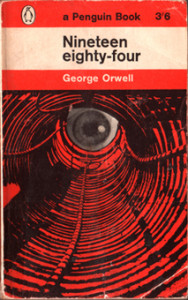 As I saw the promise of the Obama administration be betrayed and walk away from it [the promise made], in fact actually advance the things that had been promised to be sort of curtailed and rained in and dialed back, it actually gets worse, particularly drone strikes. Which I also learn at NSA we could watch drones videos from our desktops. As I saw that, that really hardened me to action…
As I saw the promise of the Obama administration be betrayed and walk away from it [the promise made], in fact actually advance the things that had been promised to be sort of curtailed and rained in and dialed back, it actually gets worse, particularly drone strikes. Which I also learn at NSA we could watch drones videos from our desktops. As I saw that, that really hardened me to action…
… in real time?
Yeah, in real time … it’ll stream a lower quality of the video to your desktop. Typically, you’ll be watching surveillance drones as opposed to actually letting you know, murder drones really going out there and bomb somebody. You’ll have a drone that’s just following somebody’s house for hours and hours. You don’t know who it is because you don’t have the context for that, but it’s just a page where it’s lists and lists of drones feeds and all these different countries with all these different code names, you can just click on the one you wanna see.
To a curious reader, the opening chapter of George Orwell’s Nineteen Eighty-Four flashes up almost automatically:
… there seemed to be no colour in anything, except the posters that were plastered everywhere. The blackmoustachio’d face gazed down from every commanding corner. There was one on the house-front immediately opposite. BIG BROTHER IS WATCHING YOU, the caption said, while the dark eyes looked deep into Winston’s own. Down at streetlevel another poster, torn at one corner, flapped fitfully in the wind, alternately covering and uncovering the single word INGSOC. In the far distance a helicopter skimmed down between the roofs, hovered for an instant like a bluebottle, and darted away again with a curving flight. It was the police patrol, snooping into people’s windows. The patrols did not matter, however. Only the Thought Police mattered.
Behind Winston’s back the voice from the telescreen was still babbling away about pig-iron and the overfulfilment of the Ninth Three-Year Plan. The telescreen received and transmitted simultaneously. Any sound that Winston made, above the level of a very low whisper, would be picked up by it, moreover, so long as he remained within the field of vision which the metal plaque commanded, he could be seen as well as heard. There was of course no way of knowing whether you were being watched at any given moment. How often, or on what system, the Thought Police plugged in on any individual wire was guesswork. It was even conceivable that they watched everybody all the time. But at any rate they could plug in your wire whenever they wanted to. You had to live — did live, from habit that became instinct — in the assumption that every sound you made was overheard, and, except in darkness, every movement scrutinized.
Thanks to Edward Snowden revelations, Orwell’s slogan B.B. is watching you is at work right now in such an efficient way the Thought Police could not have imagined. The telescreen-style constant control on the individual, of whose freedom the system is so scared, has become evident. As Noam Chomsky pointed out, Government will use whatever technology is available to combat their primary enemy – which is their own population.
Without any doubt George Orwell’s fable is the most famous novel of the dystopian genre. Today a Big Brother watching us as symbol of dictatorship and social control is what is commonly remembered of Orwell’s 1948 novel. Due to Berlusconi’s face surgery, hair implantation and make up, the moustachioed face of ever-present evergreen Big Brother is exactly the same as Berlusconi’s ageless visage that is watching us from television screens everyday; the more so in the mega posters filled with doublethink populist slogans. But in re-reading the book today, in the light of what we are witnessing in the Western contemporary world, so many current issues are there (but this is the topic of another post). Let me finish by quoting Edward Snowden words again about the possible future development of this ‘architecture of oppression’. They sound so similar to those of Aldous Huxley, an author Edward Snowden has probably never heard of, but that my readers know well:
Greenwald: “Why should people care about surveillance?”
Snowden: “Because even if you’re not doing anything wrong you’re being watched and recorded. And the storage capability of these systems increases every year consistently by orders of magnitude to where it’s getting to the point where you don’t have to have done anything wrong. You simply have to eventually fall under suspicion from somebody even by a wrong call. And then they can use this system to go back in time and scrutinize every decision you’ve ever made, every friend you’ve ever discussed something with. And attack you on that basis to sort to derive suspicion from an innocent life and paint anyone in the context of a wrongdoer.”
You [he means himself] realize that that’s the world you helped create and it’s gonna get worse with the next generation and the next generation who extend the capabilities of this sort of architecture of oppression.
Conclusion
In the end, nothing but admiration can be expressed for courageous characters who have been sacrificing their personal liberties and their private lives in the name of civil consciousness and on behalf of the community.
Since this section deals with erosion of democracy, what I said so far add new items to the collection:
The main aspect, the lack of freedom and privacy of the citizen, typical features of past totalitarian regimes, is clearly a governments’ betrayal of the constitutional values springing from the French Revolution and consequently from the American Declaration of Independence:
We hold these truths to be self-evident, that all men are created equal, that they are endowed by their Creator with certain unalienable Rights, that among these are Life, Liberty and the pursuit of Happiness.–That to secure these rights, Governments are instituted among Men, deriving their just powers from the consent of the governed, – That whenever any Form of Government becomes destructive of these ends, it is the Right of the People to alter or to abolish it, and to institute new Government, laying its foundation on such principles and organizing its powers in such form, as to them shall seem most likely to effect their Safety and Happiness
Edward Snowden and Roberto Saviano’s personal cases seems to tell a different story. Edward Snowden is hunted by ‘legal power’ while Roberto Saviano is hunted by ‘illegal power’. But this contrast is only apparent since the link mafia-politics has characterized Italian politics since the birth of Italy after the Risorgimento in the XIX century – and has ‘leaked’ into American politics as well.
Besides, today we can see how accurate George Orwell’s predictions in Nineteen Eighty-Four were.
Dear reader, who made it to this point, what is your opinion about these new items in the ‘erosion of democracy’ series? As my custom, I’d like to hear from you: If you can, please leave a comment.
[1] Citizenfour racconta lo spettro della sorveglianza globale attraverso l’umanità dei suoi protagonisti in fuga per difendere la propria libertà. Ma prima di “Citizenfour”, un altro grande documentario, Snowden’s Great Escape ha raccontato non solo la fuga di Snowden dagli Stati Uniti a Hong Kong e del passaggio in Russia con la “detenzione” nella zona di transito dell’aeroporto durata un mese, in una stanza senza finestre, ma molto di più. Ha raccontato del rifiuto di Italia, Francia e dell’Europa tutta di offrirgli asilo e protezione. Ha raccontato il fallimento di un intero continente che si dice democratico e che per questo aveva il dovere di accogliere chi rischiava la vita per difendere la democrazia.

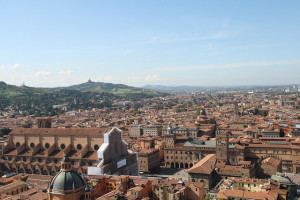
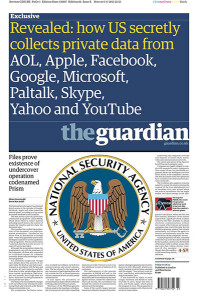




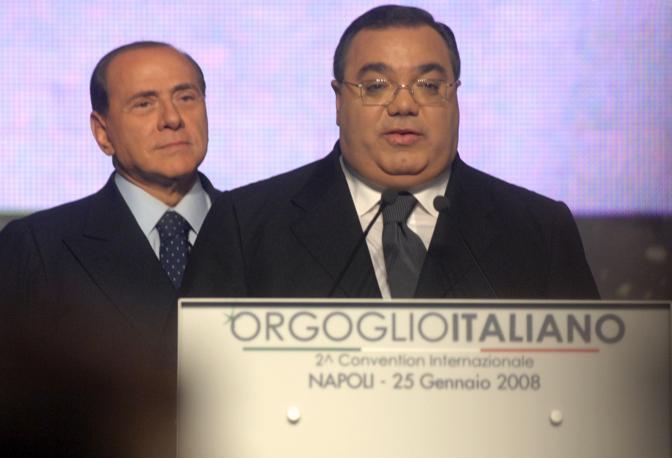




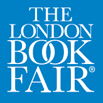 The book "Silvio Berlusconi's Italy" is
The book "Silvio Berlusconi's Italy" is 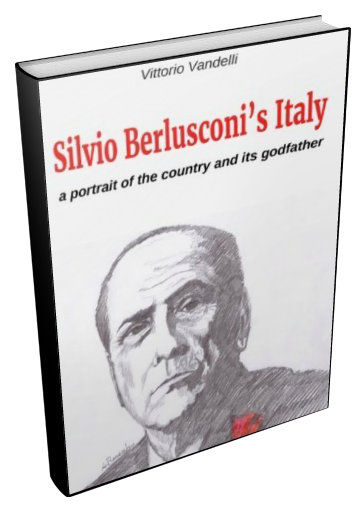
1 Comment
[…] quotation is from Edward Snowden’s Guardian interview on June 9, 2013 in Hong Kong (see post Edward Snowden, Roberto Saviano and George Orwell: dangerous truths). Edward Snowden is the young National Security Agency’s technician that in 2013 revealed the […]
Leave A Response